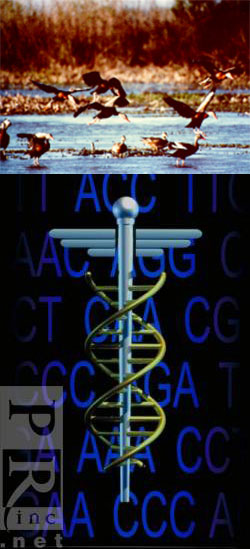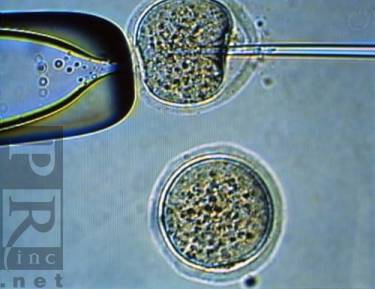Bioethics (class only)
BIOL 4486/6486
- Materials for Debates
- Citing Scientific References (PDF)
- Announcements: Reported via D2L
University Resources
- KSU Writing Center
- Department of Student Conduct and Academic Integrity
- View course in KSU Undergraduate Catalog »
- Visit KSU Undergraduate Catalog, for more information about Course Withdrawal »

-
Course Description
This course will enable the student to think more critically about some of the difficult moral problems which arise in the practice of science and from our contemporary understanding of living systems.Readings and discussion will focus on issues of personal decision making and public policy regarding both biomedical and environmental issues.
The primary activities for this course will be reading, writing and discussion, with one debate presentation for every student. Much of your learning will come from group discussions. It is especially important that you attend all the class meetings and have done the required readings before class. You are responsible for all the material covered in the readings and discussions as well as for any assignments or schedule changes.
-
Purpose of CourseMost students taking this class will become scientists, a health care professional or other user of biological knowledge. Although science classes focus solely on the physical aspects of the world, knowing science method and facts is not enough for producing good science. Advances in biology and technology are having a larger impact in fundamental issues such as re-defining life, determining its beginning and end, determining the “quality of life”, and determining behavioral or physical traits in human beings. Human technology also has a tremendous impact on the natural environment. Thus it is important that producers and users of biological knowledge be able to identify the relationship between science and a society’s values. This is especially so in a pluralistic society like the United States, with its diverse traditions and values. Furthermore, the biological sciences are rapidly growing in the commercial sector where money rather than ethics can determine which technologies are developed. Biologists should understand how biology affects society and play a mature role in its decision-making.
-
Course Learning Objectives
- Know key events in the history of human subjects research and how the events gave rise to modern bioethics;
- Understand basic principles of bioethics as expressed in the Hippocratic Oath, the Nuremberg Code, and the Belmont Principles regarding human subjects research: Respect for Autonomy, Beneficence (including Do No Harm) and Justice;
- Study example issues as occurs at the intersection between biology or medicine, and society, including other species or the environment;
- Identify ethical principles within an issue and use the larger framework for moral reasoning;
- Articulate their own opinion and views, verbally and in writing, with respect to an issue in bioethics.
- Course Prerequisites: C or better grade in Biol 3300, plus a minimum of 9 hours of 3000-4000 level Biology/Biotechnology/Biochemistry courses or consent of instructor.
-
Required Books and Reading
- Kaebnick, Gregory (Ed.); Taking Sides: Clashing Views on Controversial Bioethical Issues 15th Edition);Dushkin/McGraw-Hill, 2013.
- Bryant, John; Baggott la Velle, Linda; Searle, John. Introduction to Bioethics. Wiley. 2005.
- Readings posted on the course website (Beauchamp and Walters [“B&W”], Lifton, Furrow et al., Asche,Parens, etc.). These readings are of significant size. Budget for printing accordingly ($30-$40).
- Readings in addition to the ones listed in the syllabus may be added, and will be announced in class and posted on Desire 2 Learn.
-
Expectations, Evaluation and Grades
To receive full attendance credit you must sign the attendance sheet and be present for the full class period. In addition, you must have completed that day’s reading assignment (half off attendance credit if you come without having done the required reading). Frequent and effective participation in class discussions will be expected of everyone. Grades will be reported via Desire 2 Learn (D2L)
Your overall grade for the course will be determined according to the following:
- Self-initiated participation: 5%
- Exams or Debate (3): 20% each
- Journal: 20%
- Living Will: 3%
- Attendance and reading: 12%
A=90-100% B=80-89% C=70-79% D=60-69% F= <60%
-
How will my verbal responses in class be graded?
A. Responses: Responses to instructor questions (n= 3-4x by the end of the semester). Students will be graded on the following:
- Sound knowledge of the assigned material and general facts
- Ready identification of major issues regarding that particular topic
- Reasonable student’s analysis/response to question.
- Looking at personal notes is allowed; reading from personal notes is NOT (it must be obvious that you read the material and are not using a friend’s notes).
B. Voluntary participation:
- Sincere questions welcomed
- Sincere, reasonably thought-out comments welcomed
- If it is felt that a student is simply generating b.s. just to earn extra credit, points will be taken away.
- Manners required: instructor must call on the participant (no interruption of other students’ comments, or domineering of class).
C. Debates: Each student will participate in a formal debate regarding a topic of their choice. Students will work in teams of two or three, representing a “pro” side or a “con” side. 3-4 weeks should be allowed for preparation of the material before the scheduled debate, but you will only be told which side you are representing the week before (in order to be a good debater, you will need to know both sides of an argument, so this should not affect your studying). Grades received by each student for his/her role in the debate will be based on: a. preparation; b. presentation; c. argument; d. ability to respond to the other side. The class will also vote as to which side they agree with or considered the most convincing.
D. Attendance: The attendance grade will be determined according to the following: 10 points for every attendance (including reading preparation beforehand). 5 points off for having not done the reading before class. Total possible points by end of semester: 300.
Attendance grade: 280/300 pts = A, 260/300 pts = B; 240/300 pts = C; 220/300 pts = D, 200/300 pts = F. Only jury duty, military orders, emergency surgery, or required university-sponsored events conflicting with class will be accepted for excused absences. All other reasons—minor illness, lack of childcare, traffic ticket, etc. will not be accepted.
E. Exams: Exams will be primarily essay, but possibly include short answer or a decision matrix. Exams will not be graded on the writer’s opinion, but on how well the student writes and argues or deduces his/her position.
F. Self-Reflective/Moral Reasoning Journal: As part of this course, you will be developing an introspective journal where you will be expected to keep your reasoning essays and course reading summarizations. There is a more detailed account of what is expected on this assignment on D2L. It will be completely electronic (no paper necessary) and will need to be handled accordingly. In short, you will be expected to accumulate the summarizations of pre-class reading combined with your moral reasoning essays on each decision. Online journal checks of Satisfactory/Unsatisfactory will be conducted throughout the semester, on any of the submitted topics. Another more thorough check will be conducted at then end of the semester and a grade will be assigned according to the journal rubric posted in D2L. The mid-semester checks will also generally follow the same rubric, although it is on a S/U scale.
-
Lecture Slides and other Electronic MattersI may use lecture slides. Students are welcome to request pdf file copies of the slides after lecture, but slides will not be available before lecture. You are welcome to tape the lecture or bring in your computer notebook to type notes (students who surf on the web or check email during lecture will be considered rude and wasting their time; their laptops will be taken up until the end of lecture if caught doing non-class activity on their computer).
-
Class Voting Results for Debates
-
PASYes, it should be allowedNo, it should not be allowed
-
Is an individual mandate to purchase health insurance fair?YesNo
-
Is Abortion Immoral?Yes, it is immoralNo, it is not immoral
-
Should a pregnant woman…..Yes, she should be prosecutedNo, she should not be prosecuted
-
Pre-natal DiagnosisFor PND/PGDAgainst PND/PGD
-
Should large primates be used in research?Against animals in researchFor animals in research
-
Should ANWR be developed for oil?For oil drillingAgainst oil drilling
-











